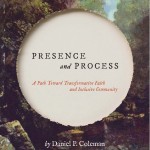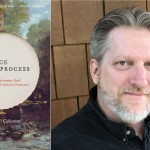
I’ve been doing a lot of pondering and reading lately about the basis of morality in various ideologies. As a fundamentalist evangelical Christian I was taught, for example, that atheists are intrinsically immoral due to the fact that they are spiritually unregenerate and do not adhere to any transcendent divine moral code. In reality I’ve found atheists to be no less moral than Christians or anyone else.
I’ve long noticed that an externally imposed morality–whether the source is religious (such as the Bible, the Tanakh, the Quran) or secular (such as our civic laws and codes) will create a template of morality that keeps people–by and large–within the lines, but doesn’t necessarily provide a deep, internal moral compass which disinclines them towards loophole-seeking and excuse-making and drifting off-course.
It seems that every generation is faced with situations that require a steady moral compass in order to navigate skillfully. Yet, looking through the lens of my own evangelical Christian past, I can scan history and see plenty of times when Christians have been on the wrong side of history. The genocide of Native Americans, the enslavement of Africans and rapacious colonization of Africa, the acquiescence to or even collusion with various dictators, institutional misogyny and racism, participation in and promotion of war and militarism and nationalism, etc. So often, a majority of evangelical Christians in a given time and place have failed the moral test, only to later (often much later) disingenuously appropriate the moral courage of the historical few who did stand up for what was right at the time (the abolitionists and suffragists and human rights activists; Dietrich Bonhoeffer and MLK; and probably in the not-too-distant future, churches who affirm LGBTQ equality and/or provide sanctuary to undocumented immigrants).
I’m just writing out my ponderings here, such as they are, and I have no grand summation or suggestion other than this: morality which can reliably navigate one through vicissitudes and turbulence, it seems to me, must come from within oneself as the result of practices which foster introspection and self-awareness. And just about anyone, regardless of their religion (or absence thereof) has the capability to develop that.










